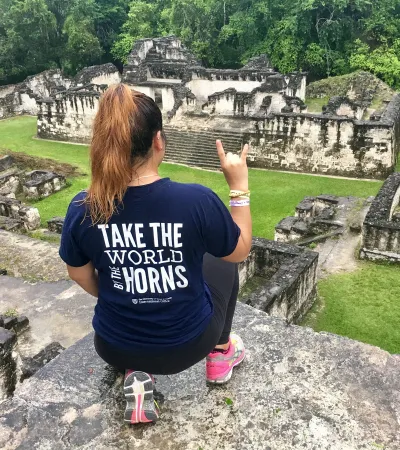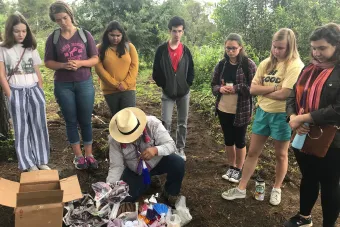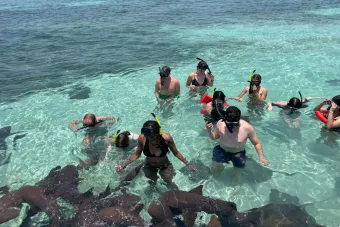
Ancient & Colonial Heritage in Latin America: Cultural Treasures of the Maya
This program is currently on-hold and is not being offered in May 2026.
With a focus on travel and hands-on experiences, this May Term Abroad program offers an interdisciplinary overview of the heritage of Central America through Maya and Colonial history in Guatemala and Belize.



The program begins at Casa Herrera, UT Austin's educational and research facility in the UNESCO World Heritage city of Antigua, Guatemala where students will be matched with local family stays, and ends in the Caribbean coast of Belize. Coursework relies on research projects based on direct observation of archaeological sites, museums, villages, cooperative businesses, natural reserves and protected ecosystems, experienced through the extensive travel components of the program.
Dates
This program is currently on-hold and is not being offered in May 2026.

